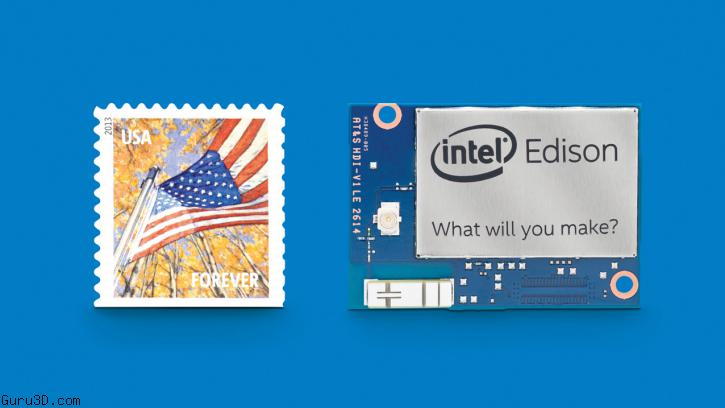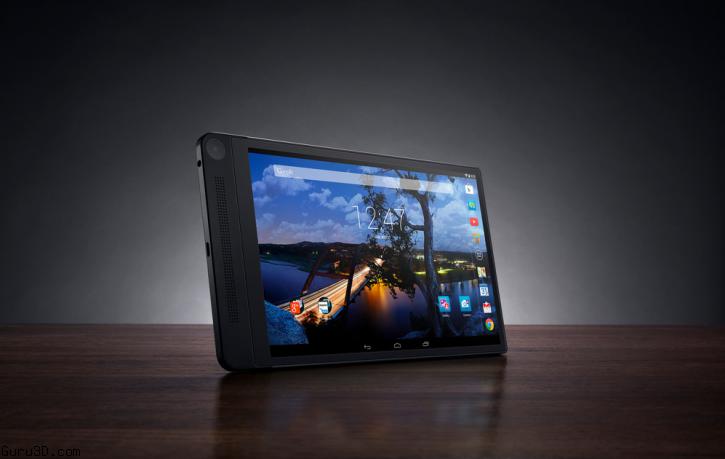Intel Corporation CEO Brian Krzanich kicked off Intel's annual technical conference with a broad set of computing initiatives and projects showing how the company is moving quickly to enable new market segments where everything is smart and connected. Krzanich and other executives announced new hardware and software developer tools, previewed upcoming Intel technologies and announced new products across several technology segments.
"With our diverse product portfolio and developer tools that span key growth segments, operating systems and form factors, Intel offers hardware and software developers new ways to grow as well as design flexibility," said Brian Krzanich, Intel CEO. "If it's smart and connected, it is best with Intel."
The technical conference's format and content were revamped this year to appeal to an expanded range of engineers and programmers, reflecting Intel's efforts to extend the reach of Intel technology. The agenda and technology showcase content expanded beyond PCs, mobile and the data center to also include the Internet of Things (IoT) and wearables and other new devices created by so-called "makers" and inventors. More than 4,500 people are attending the forum this week from around the world.
Developer Tools News Items
- Intel announced the Intel Reference Design for Android program to offer tablet users a high-quality, consistent experience based on the latest Android operating system. Intel will help scale the deployment process of Android for tablet manufacturers by providing the software engineering work, streamlined access to Google Mobile Services, as well as support for updates and upgrades to future Android releases.
- Intel announced the Analytics for Wearables (A-Wear) developer program that will accelerate development and deployment of new wearable applications with data-driven intelligence. The developer program integrates a number of software components, including tools and algorithms from Intel and data management capabilities from Cloudera CDH all deployed on a cloud infrastructure optimized on Intel architecture. Developers of Intel wearables will use the A-Wear developer program free of charge.
Intel Product Availability News Items
- Intel announced the first commercial availability of the Intel XMM 7260 modem, now shipping in the Samsung Galaxy Alpha smartphone for Europe and other regional markets. The Intel XMM 7260 and Intel XMM 7262 modems support one of the industry's fastest mobile standards, delivering Category 6 data rates up to 300 Mbps. The modems are Intel's second-generation LTE platforms and provide device manufacturers a high-performance, power-efficient solution for the coming wave of LTE-Advanced networks and devices.
- Intel Edison, a postage stamp-size computer with built-in wireless that was announced at CES, is now shipping and available. The platform is designed to enable rapid innovation and product development from inventors, entrepreneurs and consumer product designers by simplifying the design process, increasing durability and providing additional cost savings.
- AT&T will be the exclusive carrier for the "My Intelligent Communication Accessory" (MICA) bracelet designed by Opening Ceremony, engineered by Intel, that was introduced last week in New York.
Product and Innovation Preview News Items
- Michael Dell and Krzanich previewed an upcoming Dell tablet with first-of-its-kind photo capabilities. The new Dell Venue 8 7000 Series with Intel RealSense snapshot is the world's thinnest tablet and will be available in time for the holiday season. Intel RealSense snapshot is an enhanced photography solution that creates a high-definition depth map to enable measurement, refocus and selective filters with a touch of a finger. It will introduce new capabilities and new ways of using the tablet, opening up a new creative horizon for developers to come up with apps that change how consumers engage with their photos.
- Intel Wireless Gigabit Docking - a full wireless experience that includes wireless docking, wireless display and wireless charging - was demonstrated via an Intel reference design based on a 14 nm next-generation Intel processor.
- Developers got a preview of the next generation 14nm Intel Core processor for 2015.
- Renowned physicist Stephen Hawking joined the conference via video to discuss how technology for the disabled is often a proving ground for the technology of the future. In connection with Hawking's video attendance, Intel revealed for the first time a unique Connected Wheelchair Project, a proof of concept designed by Intel interns as part of the Intel Collaborators program. The project demonstrated how to transform standard "things" into data-driven, connected machines using the Intel Galileo Development Kit, based on Intel Quark processors, and Intel Gateway Solutions for the IoT, featuring Wind River and McAfee security products.


